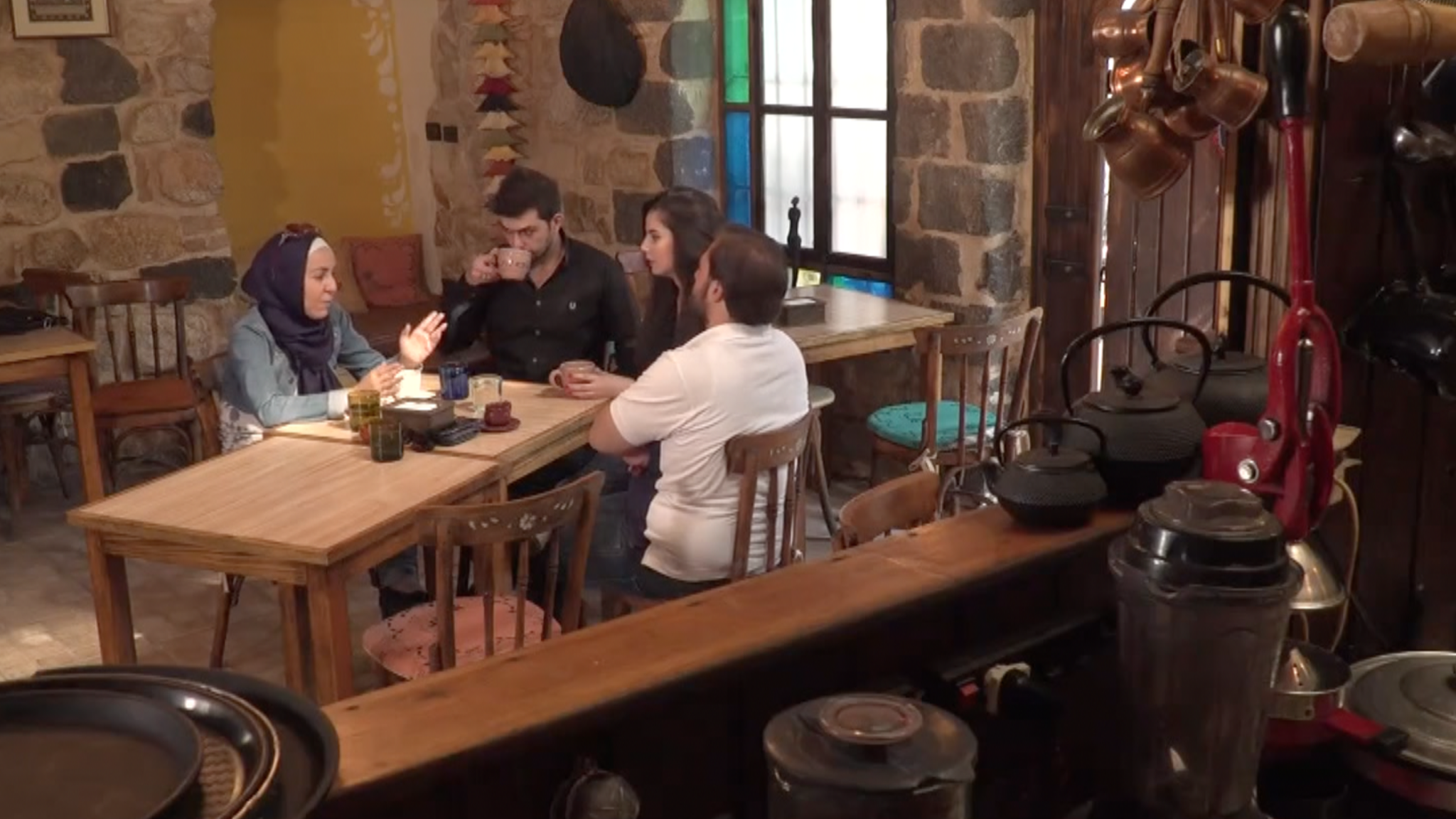US election 2016: Middle East awaits Trump policy decisions
- Published
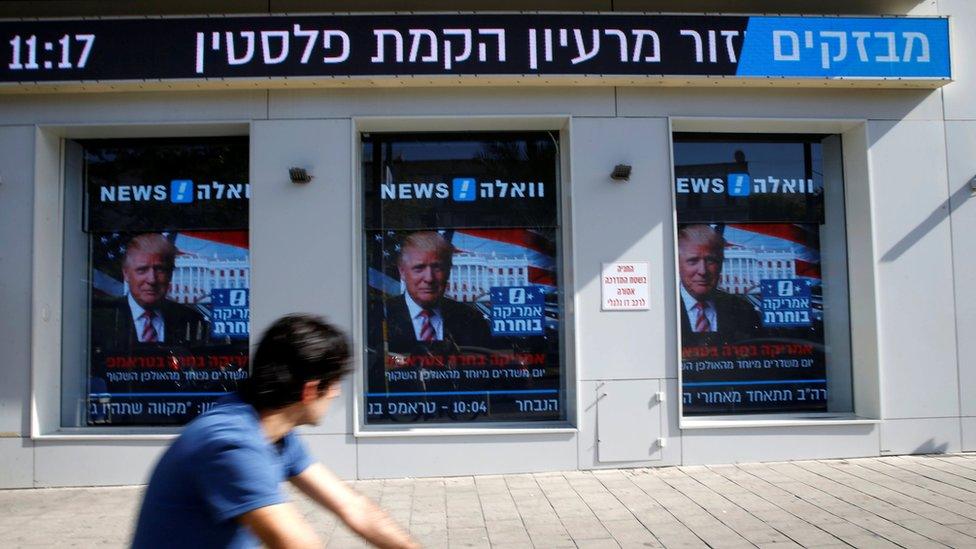
Many Middle Eastern leaders have congratulated Donald Trump on his unexpected victory in the US presidential election.
But some will be waiting to see whether he changes long-standing US policies on major issues and crises in the region.
BBC correspondents have been gauging the reaction.

Iraq and Syria: Quentin Sommerville, Mosul
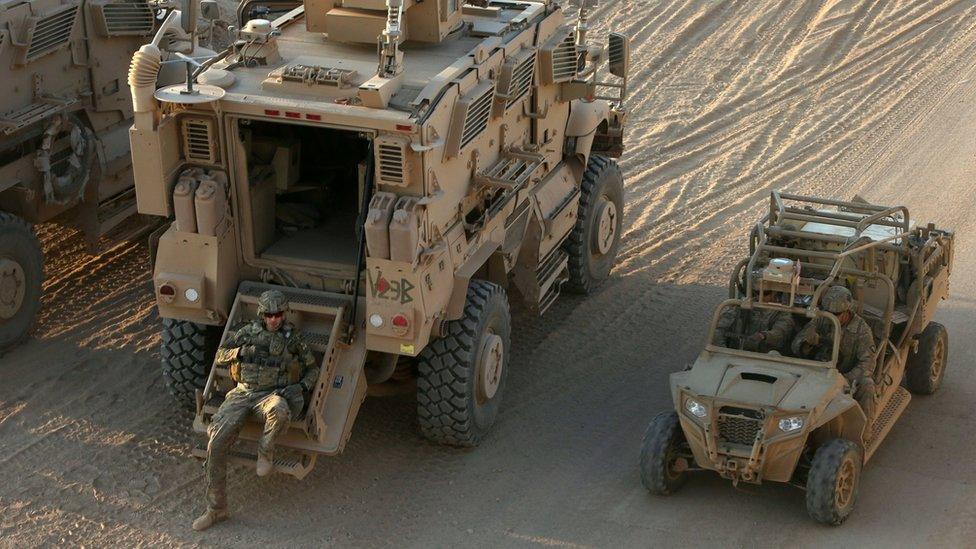
There are 5,000 American troops in Iraq, some of whom are assisting the Mosul offensive
On the ground in the battle for Mosul, the fight to recapture Iraq from so-called Islamic State, Donald Trump's election will make little difference.
The military campaign is advanced, and IS in retreat. Despite his criticism of the strategy used against IS, in Iraq at least, it is delivering results.
In Syria, it is a different case. Mr Trump has already questioned the US partnership with moderate rebels. Across the Middle East, he is encouraging more co-operation with President Bashar al-Assad's staunch ally, Russia.
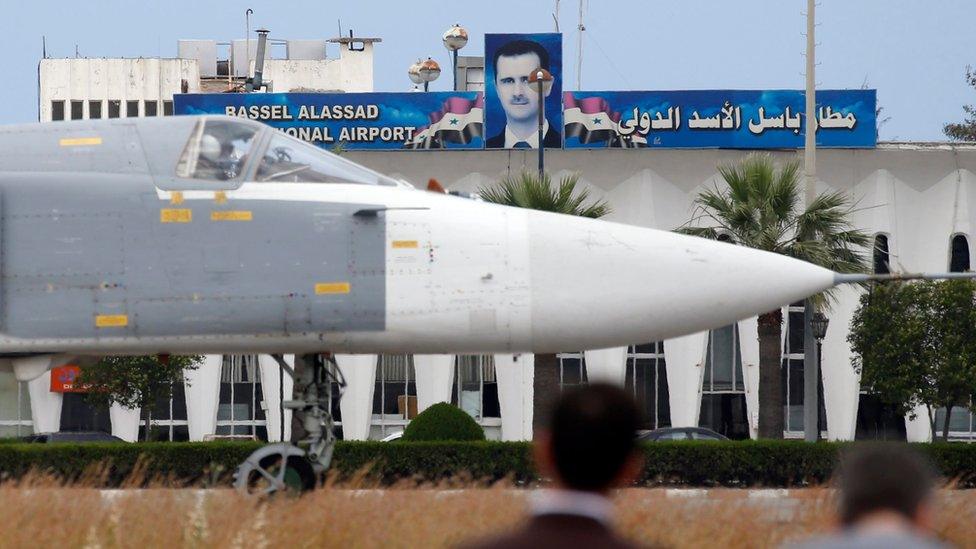
Russia has been carrying out air strikes against opponents of Syria's president for a year
In the short term, some suggest it might encourage Moscow to begin its bombing campaign on rebel-held Aleppo sooner rather than later.
The balance of power in Syria's war - a proxy war, as much as a civil war - may be about to change dramatically.

Israel and the Palestinians: Thomas Fessy, Jerusalem

Supporters of Donald Trump organised events in Jerusalem during the election campaign
Israeli Prime Minister Benjamin Netanyahu congratulated Donald Trump, describing him as "a true friend of the State of Israel". Mr Netanyahu said he was looking forward "to working with him to advance security, stability and peace in our region".
The mayor of Jerusalem, Nir Barkat, was one of the first Israeli officials to send his congratulations. Mr Trump's campaign said his administration would recognise the holy city as the "undivided capital of the State of Israel". That would antagonise Palestinians, who want East Jerusalem as the capital of a future Palestinian state.
Palestinian Authority President Mahmoud Abbas congratulated Mr Trump, hoping that "just peace" would be achieved during his term. Yet much uncertainty remains. Donald Trump has said he would support a two-state solution to the Israeli-Palestinian conflict, but also that peace will only be possible when "Palestinians renounce hatred and violence".
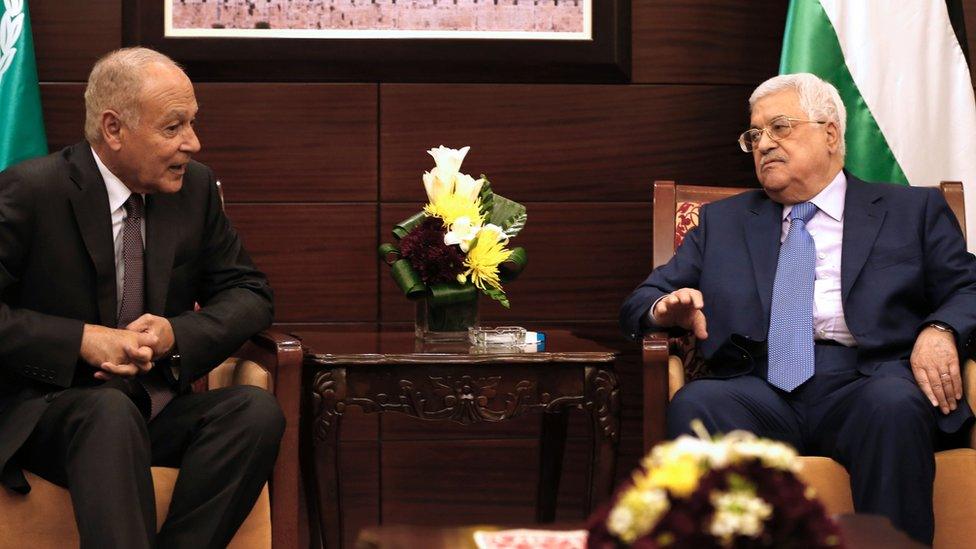
Mahmoud Abbas (R) met the head of the Arab League as Mr Trump's victory was confirmed
A spokesman for the Palestinian militant group Hamas, which controls the Gaza Strip, said: "The Palestinian people do not count much on any change in the US presidency because the US policy towards the Palestinian issue is a consistent policy on the basis of bias. Nevertheless, we hope that US President Trump will re-evaluate this policy and rebalance it on the Palestinian issue."
Israelis from the hard-right meanwhile hope that Mr Trump will not speak against the expansion of Jewish settlements in the occupied West Bank. Israeli Education Minister Naftali Bennett put it quite bluntly: "The era of a Palestinian state is over."

Iran: Mohsen Asgari, Tehran
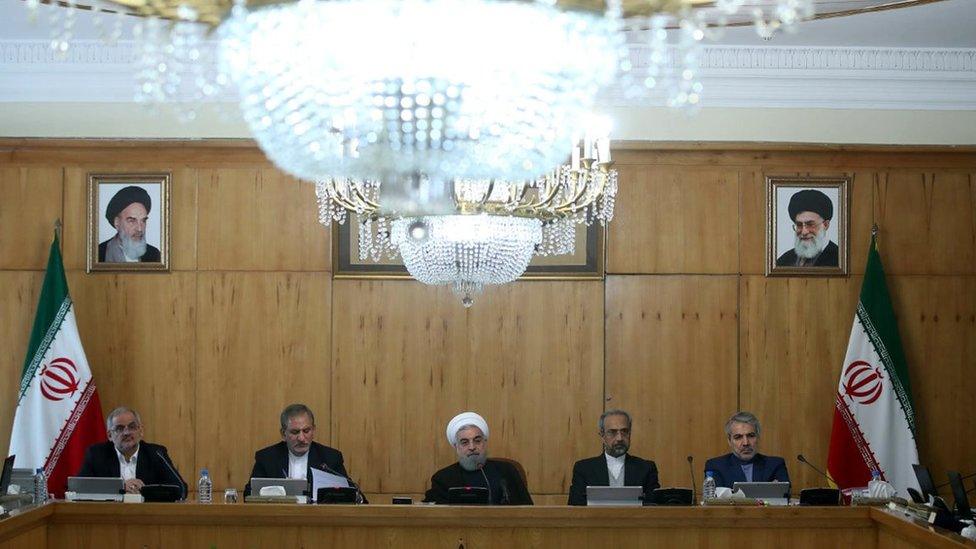
Iran's president said there was "no possibility" of the nuclear deal being overturned
For many Iranians, both Hillary Clinton and Donald Trump are cut from the same cloth, although they were surprised to see the latter elected. One political activist said the reaction was similar to when the UK voted to leave the European Union.
Many here believe a Trump presidency could be more problematic for Iran as far as the 2015 nuclear deal with world powers is concerned. Former President Akbar Hashemi Rafsanjani said during the election campaign that the Republican candidate was a bullying and dangerous man who had no principles.
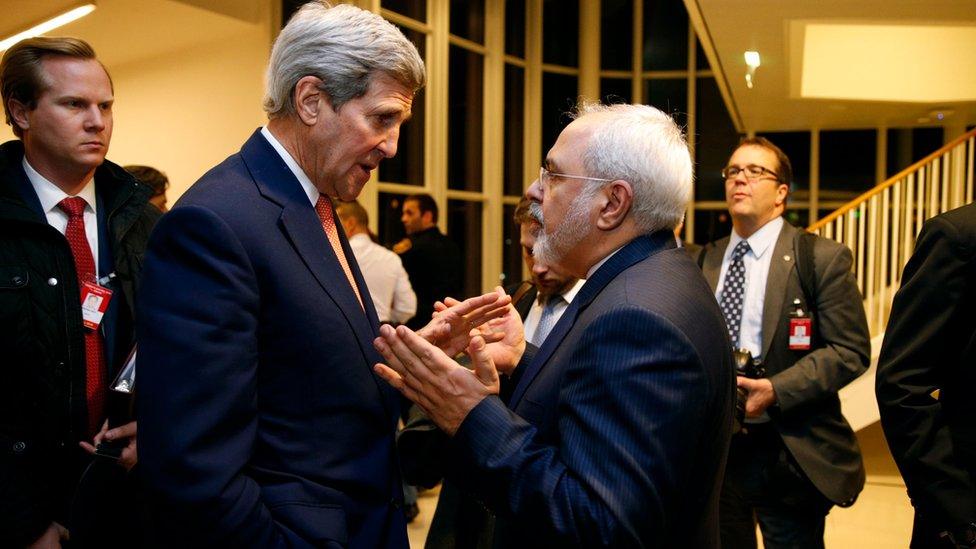
US Secretary of State John Kerry negotiated the nuclear deal with Iran's Mohammad Javad Zarif
But some Iranian politicians believe Mr Trump lacks Barack Obama's ability to influence the international community and will therefore struggle to reach consensus with European governments on how to deal with Iran.
From that perspective, a Trump presidency could be seen as an opportunity.

The Gulf: Frank Gardner
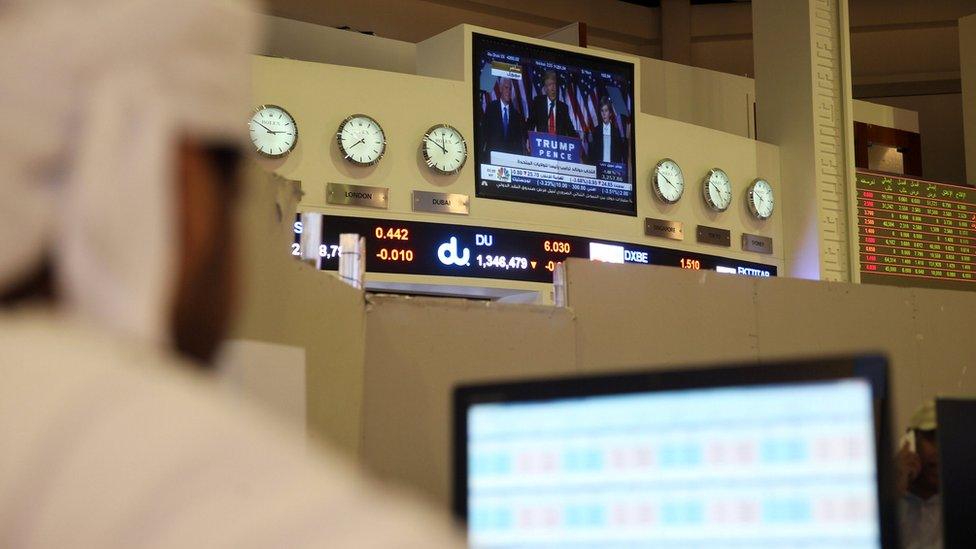
Many people in the Gulf were offended by Mr Trump's anti-Muslim rhetoric
Saudi Arabia's King Salman has wasted no time in congratulating Donald Trump, expressing his hope that a Trump presidency will bring stability to the Middle East.
US allies Kuwait and the United Arab Emirates have also sent messages of congratulation.
The Saudi leadership had been deeply worried that Washington was warming towards its rival, Iran, so it will welcome Trump's tough stance.
On a personal level, opinion in the Gulf is divided. Mr Trump's earlier Islamophobic comments caused huge offence, yet many still admire him as a strong leader who speaks his mind.

News and social media: Angy Ghannam, BBC Monitoring, Cairo
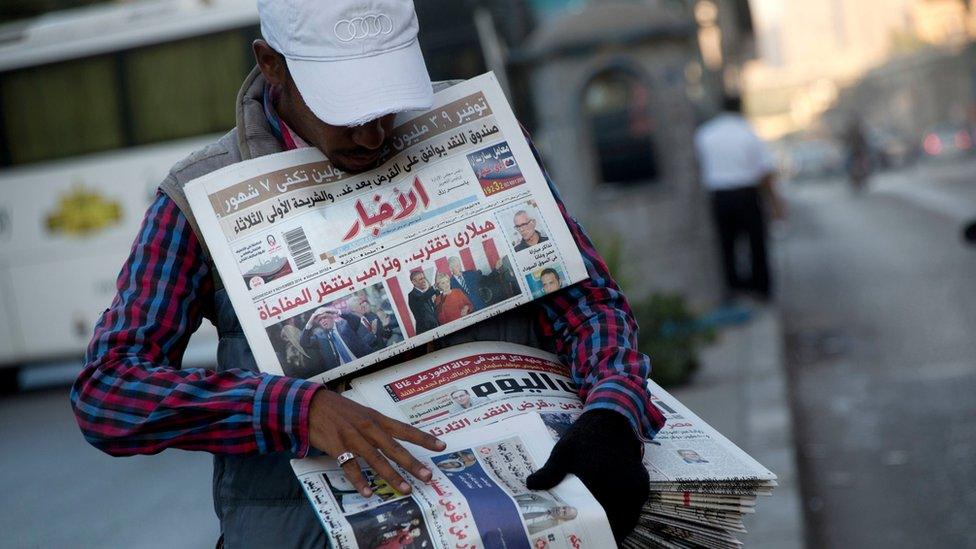
Arabic news websites described the result as a "miracle" and a "political earthquake"
The general sentiment among regional media is that for Arabs it makes no difference whoever is in the White House.
While coverage of the election result by the main pan-Arab TV channels has been relatively balanced, the stance adopted by domestic stations has tended to reflect local priorities.
Arabic news websites have described the result as a "miracle", a "political earthquake", and "contrary to all expectations".
Across social media, the overwhelming sentiment has been one of cynicism and pessimism regarding Mr Trump's comments about Arabs and Muslims.
The majority of Arab users agree that what they regard as the US's negative policies will remain unchanged.
But some see a perverse silver lining, saying that at least Mr Trump was "clear about his enmity", while Mrs Clinton was "a hidden enemy".
- Published9 November 2016
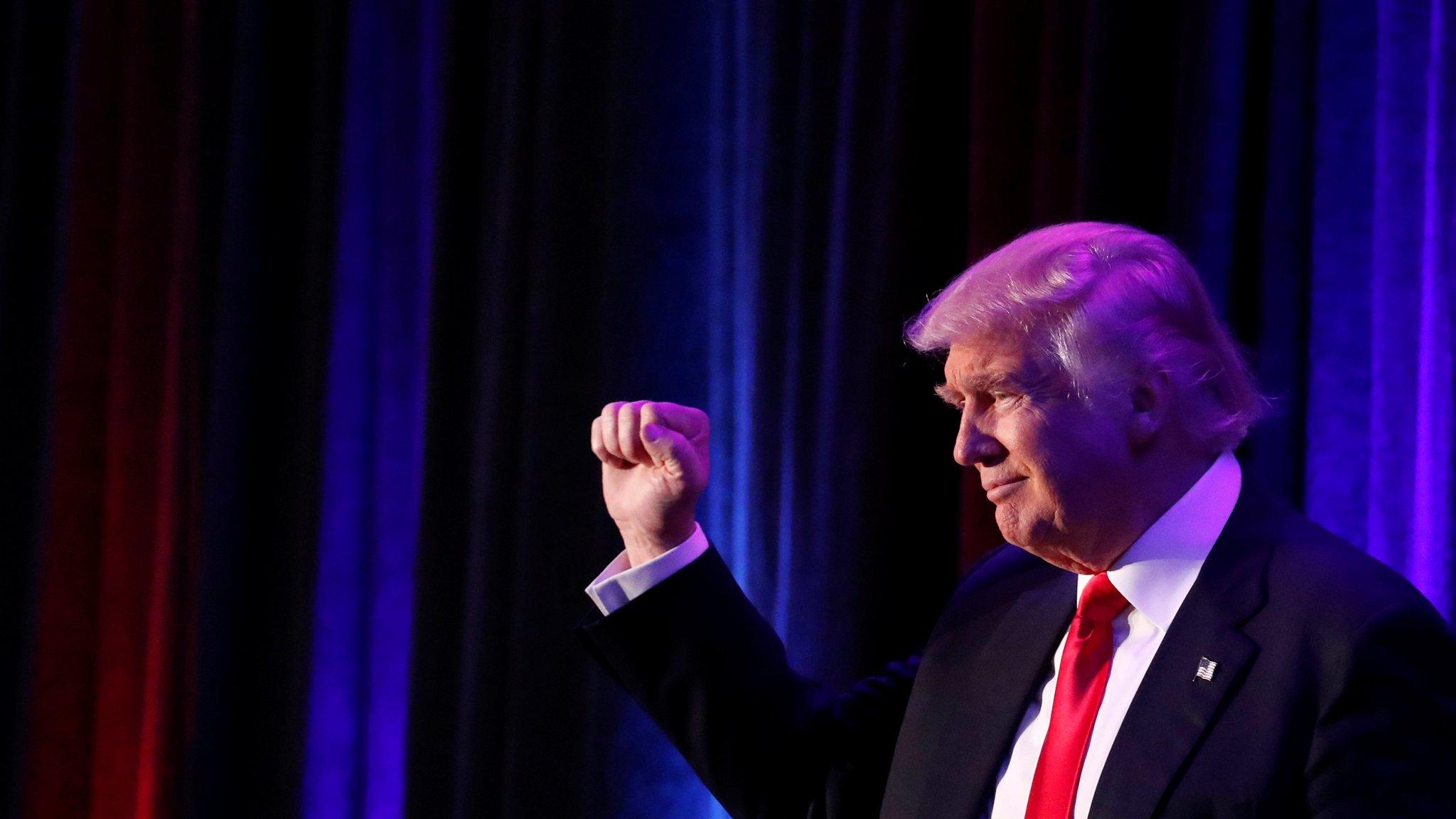
- Published27 October 2016

- Published3 November 2016
